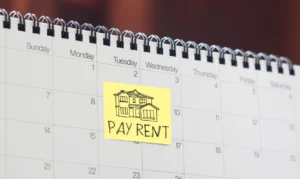Can Real Estate Property Be Taken From You In A Lawsuit?

If you’re facing a lawsuit, you may wonder if your real estate property can be taken from you as part of the legal proceedings. In most cases, the answer is yes. Real estate property is considered an asset, and the court can take them to satisfy a judgment.
Exceptions exist in some states that exempt your primary residence from seizure, but up to a specific value. You can take steps to protect your assets, including your real estate property. However, searching for legal ways to safeguard them is crucial before litigation.
On the other hand, can you protect assets after a lawsuit is filed? It can be challenging but not impossible. The first step is to discuss the best way forward with an expert legal counsel. In this article, you’ll learn how the court can take your real estate property in a lawsuit and how to protect your assets.
How Real Estate Property Can Be Taken in a Lawsuit
Courts can seize your real estate property—including homes, land, and buildings—in certain circumstances. For instance, a creditor places a judgment lien on the property, and the debtor fails to pay the judgment. Meanwhile, the government can seize cash and cars if these assets are allegedly involved in a crime or illegal activity through civil forfeiture.
If you’re facing a lawsuit, it’s crucial to understand how to protect your real estate property. Below, you’ll find the most common legal bases for asset seizure.
-
Judgment Lien
The court may enter a judgment against you after losing a lawsuit, including paying the plaintiff a specific amount. The plaintiff may place a judgment lien on your real estate property if you can’t afford it. It refers to a legal claim against your property that prevents you from selling or refinancing it until you fulfill the lien.
-
Forced Sale
Failing to pay for a judgment lien can prompt the plaintiff to force the sale of your property to satisfy the debt. They can use the proceeds from the sale to pay off the claim. If the proceeds are insufficient to meet the debt, you may still be responsible for the remaining balance.
-
Bankruptcy
If you file for bankruptcy, your real estate property may be taken to satisfy your debts. In a Chapter 7 bankruptcy, you can sell non-exempt assets, including real estate property, to pay off your debts. In a Chapter 13 bankruptcy, you may keep your property, but you’ll be required to repay your creditors for three to five years.
Protecting Your Real Estate Property
Once a lawsuit is filed, it may be too late to protect your assets. However, you can proactively create an asset protection plan to safeguard your assets. It’s a sound legal strategy to shield your assets from potential creditors and lawsuits.
Real estate and asset protection strategies include homestead exemption, asset protection trust, and transferring ownership to a limited liability company (LLC).
-
Homestead Exemption
Homestead exemption—which protects a certain amount of equity in your primary residence from creditors—is enforced in most states. The exemption amount varies from one jurisdiction to another. However, it can be a powerful tool for protecting real estate property. Unfortunately, this strategy won’t prevent bank foreclosure if the owner defaults on their payments.
-
Asset Protection Trust
A trust is a legal arrangement that can protect your assets from creditors. Placing your assets in a trust may require you to relinquish control of the assets. However, you still retain ownership of them. As a result, it can become more difficult for creditors to seize your assets.
Besides domestic asset protection trusts, property owners and investors can consider establishing an offshore asset protection trust. This legal arrangement allows them to set up a trust outside the US, especially in jurisdictions with more robust and favorable asset protection laws.
-
Limited Liability Company (LLC)
Another way to protect your real estate property is to transfer ownership to a limited liability company (LLC). An LLC provides liability protection for its owners. The owner’s assets, including real estate property, are generally protected if someone sues the LLC. However, this option may have tax consequences. Therefore, it helps to consult tax and legal professionals before deciding.
Conclusion
Real estate properties and other assets can be taken from you in a lawsuit, but options are available to protect them. Creating an asset protection plan and considering the above solutions can protect your real estate property.
However, the best course of action will vary depending on your circumstances and applicable laws. Seeking the advice of an expert attorney can help you determine the best strategy for protecting your real estate property in case of a lawsuit or other legal action.













 Accessibility
Accessibility